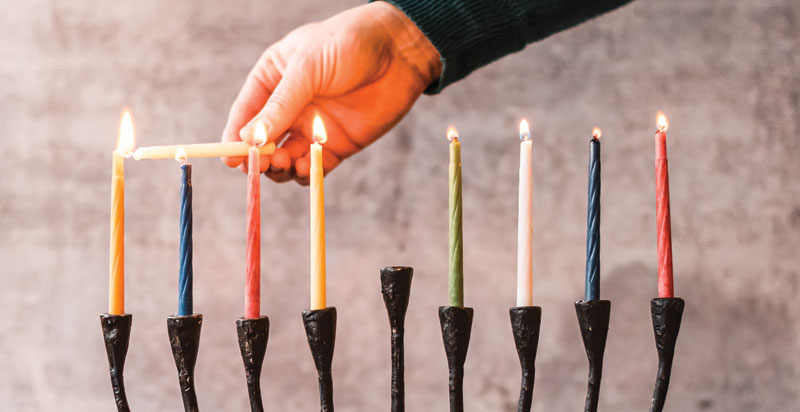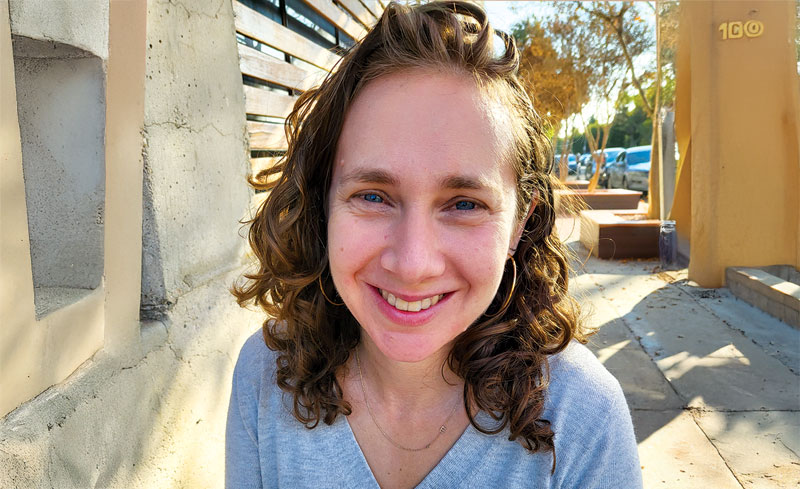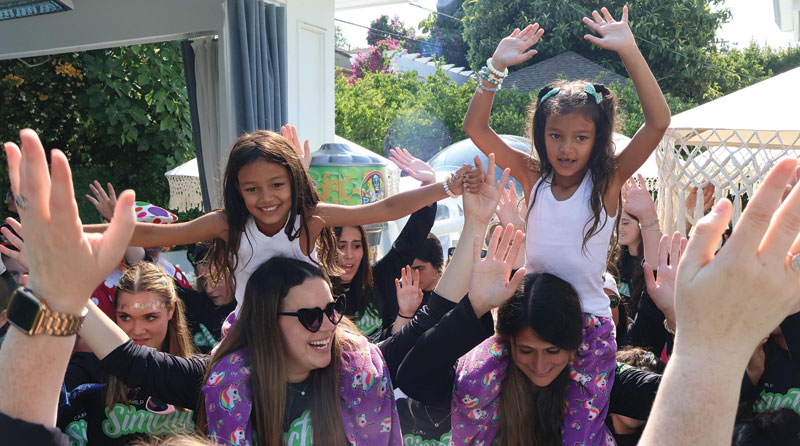Since becoming an independent nonprofit in 2004, the 54-year-old Valley Cities Jewish Community Center has enjoyed growing success in the East San Fernando Valley.
An estimated 1,000 people use its mural-adorned building each week. The center’s nursery school has a waiting list for 2-year-olds and its class for 3-year-olds is at capacity. Recent adult programs at Valley Cities have attracted high-profile speakers like Gore Vidal and Arianna Huffington.
So members were stunned last Thursday, when it was announced that a $2.7 million offer from a private philanthropist to buy the Burbank Boulevard property and turn it over to the center was rejected by the building’s current owner, the Jewish Community Centers Development Corp. (JCCDC) — formerly the JCC parent organization Jewish Community Centers of Greater Los Angeles.
Valley Cities trustees say the center, which the JCC has occupied since its inception, may be forced to shut its doors as early as June 15 as a result.
“As it stands right now, the negotiations have broken down,” said Ariel Goldstein, a Valley Cities JCC board member. “Unless the nine members of the JCC Development Corp. change their minds, the community center will be sold.”
Valley Cities Board President Michael Brezner said talks began deteriorating over the last few months. “Within two days it went to pieces,” he said.
In 2004, Valley Cities JCC faced closure when the Jewish Community Centers of Greater Los Angeles went through a severe financial crisis that affected JCCs throughout L.A. County. The Bay Cities and North Valley JCC properties both were sold, and the Conejo JCC was shut down to settle debts incurred by the umbrella agency’s financial mismanagement.
In 2005, the philanthropist Hyman Jebb Levy stepped in with an anonymous offer of $2.7 million to purchase the Valley Cities JCC property at a discounted price from the JCCDC. The JCCDC agreed in principal to accept the offer, with the stipulation that the Valley Cities facility would be renovated or rebuilt. Center organizers involved in the negotiations said the renovations became the ostensible sticking point in contract negotiations with the JCCDC board.
“Unfortunately, the negotiations have led the JCCDC board to conclude that the prospective sale was not in the best interest of the community, or a proper and justified use of community funds,” the JCCDC said in a prepared statement sent to The Journal.
Brezner said he is concerned that rising real estate values may actually be the central issue. He points out that while the property was valued at $2.2 million three years ago, a recent appraisal valued the property at $6.7 million.
“The concern is that there are [other] offers on the table,” he said, although he also said he is not aware of any offers.
Twenty Valley Cities JCC supporters wearing T-shirts that read “Save Valley Cities JCC” circulated petitions at the Israel Independence Day Festival on April 29. While the signatures had yet to be counted, organizers believe the numbers are in the thousands.
At press time on Tuesday, an open town-hall meeting was scheduled for May 2 in the center’s auditorium, to address the concerns of members, preschool parents and teachers, who rejected a strike after severence concerns were raised by the employees’ union AFSCME, District Council 36.
On April 26, parents and longtime members lined Burbank Boulevard, holding up signs that read: “It’s not just a building, it’s our home,” “You can’t put a price on community” and “Don’t let greed destroy our center.”
For members like 81-year-old Lester Paley, who has used the center’s facilities since it opened, the announcement last week was disheartening.
“I’ve said through the difficult period ‘I hope I don’t have to say Kaddish,'” he said, referring to the prayer recited by mourners. “It’s a sad situation to see an institution like this go down the drain.”
The property sits amid a neighboring Jewish population of 30,000 to 40,000 people, including many Persian, Israeli and Russian immigrants, according to a study prepared for the JCC.
The center currently has 28 paid employees and a preschool program with 97 students.
Teacher Mimi Mandel, 42, has worked at the facility for 17 years. She said it’s been like a second home to her, and she calls the rejection of Levy’s offer a travesty.
“I’m still in shock,” she said. “I know one of the board members [of JCCDC]. I’ve had three of her kids. I can’t believe she’s done this.”
Preschool mothers Lana Bushell and Kathy Weiss Squires sat together on a couch near the center’s entrance. The two met through the center and became fast friends. Both were stunned by the prospect that the center might close.
“It’s devastating,” said Bushell, 32.
Weiss Squires is worried about what she’ll do for childcare if the center closes.
“It’s already May, and trying to find a preschool is going to be impossible,” she said.
The Jewish Federation of Greater Los Angeles, which has provided Valley Cities JCC with more than $1 million in early childhood education funding and other center services, issued a statement last Thursday saying it would help preschool parents makes alternate arrangements for their children if needed, or continue to provide funding should the center continue its preschool program beyond June 15.
“If we don’t win, whatever money is made [on the sale of the property] should go to The Federation,” said Marcia Minkin, the Valley Cities JCC’s vice president. “They’ve supported us and made it possible for this to be in existence.”
President Brezner hopes the building will remain a Jewish center and said he wants the JCCDC board members to visit the site before making up their minds. He said they have not visited the property in more than three years.
“This has never been as successful as it is now,” he said.
The center has no contingency plans in place for relocation, because the board entered negotiations with optimism. “We felt like this deal was going to fly,” Brezner said.
At this point Brezner isn’t thinking about what life for the center might be like after June 15. If the JCCDC doesn’t change its stance, he said, any talk of continuing after June 15 could depend on the community’s lobbying.
“It’s inconceivable that this place will close,” Brezner said.






















 More news and opinions than at a Shabbat dinner, right in your inbox.
More news and opinions than at a Shabbat dinner, right in your inbox.